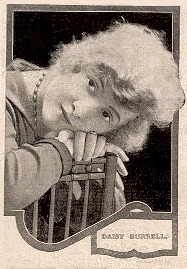Cast

- Daisy Burrell as Lotus Devine [1]
- Owen Nares as Oliver Selwyn [1]
- Minna Grey as Amy Palliser [1]
- Tom Reynolds as Palliser [1]
- Richard Barry as Alf Purvis [1]
- John Phelps as Percy Melville [1]
| The Last Rose of Summer | |
|---|---|
| Directed by | Albert Ward [1] |
| Written by | Roland Pertwee [1] Hugh Conway (novel) [2] |
| Produced by | G. B. Samuelson [1] |
| Starring | Owen Nares [1] Daisy Burrell [1] |
Release date |
|
| Country | United Kingdom |
| Language | English |
The Last Rose of Summer is a British silent motion picture of 1920 directed by Albert Ward, produced by G. B. Samuelson, and starring Owen Nares and Daisy Burrell. A drama, it was written by Roland Pertwee, based on a novel by Hugh Conway.
In The Last Rose of Summer Oliver Selwyn is a collector who woos Lotus Devine, but not for herself alone. The movie has been called "a melodramatic tale of a spinster betrayed for the sake of a valuable teaset". [3] Denis Gifford says "Collector feigns love for spinster to obtain her father’s tea service." [1]
